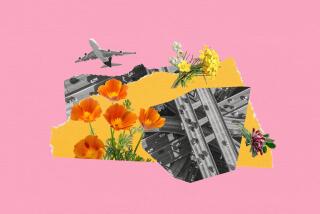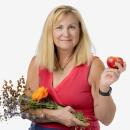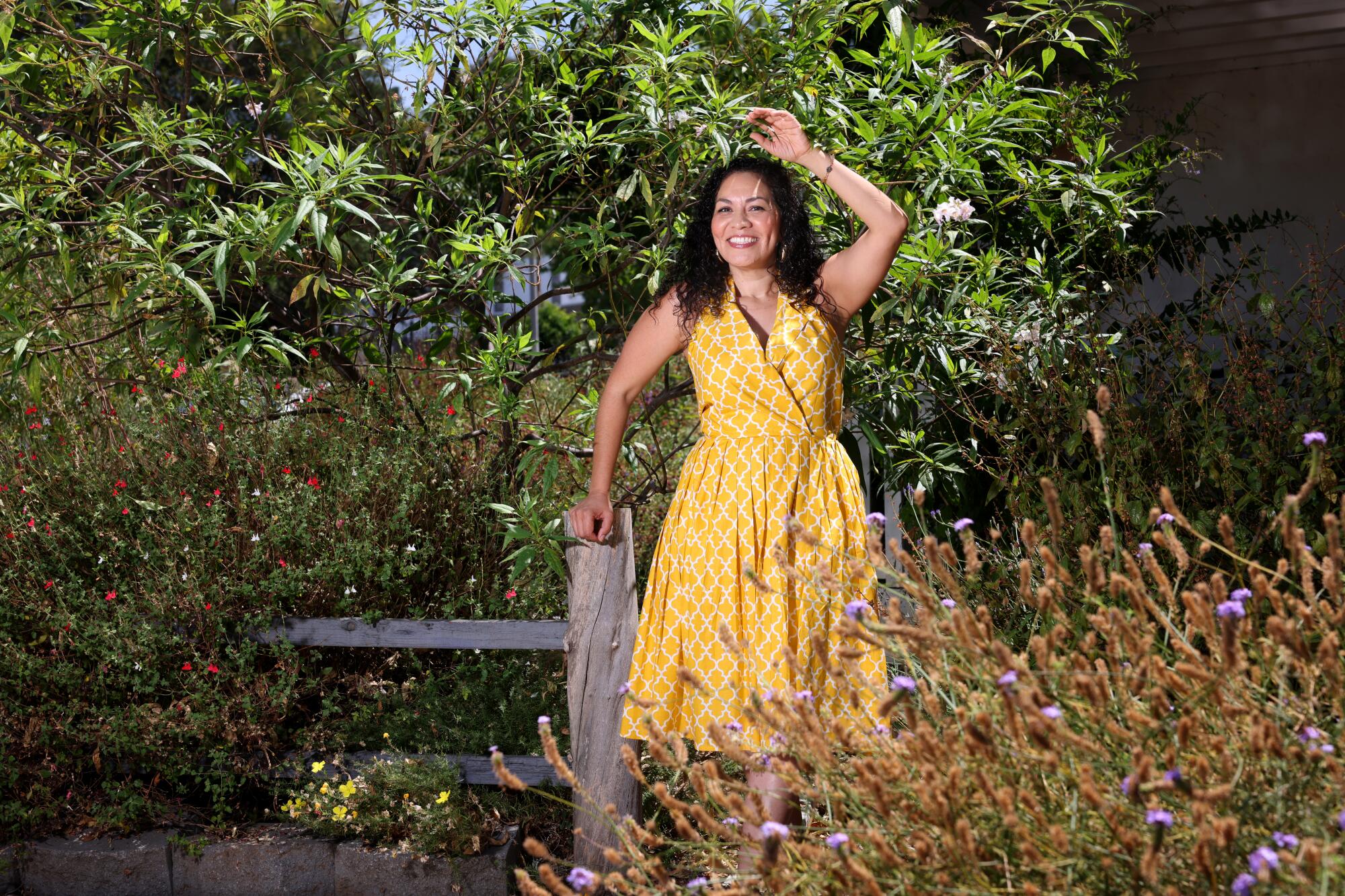
- Share via
Water-hungry lawns are symbols of Los Angeles’ past. In this series, we spotlight yards with alternative, low-water landscaping built for the future.
When Aurora Anaya bought her little Art Deco house on a corner lot in Whittier, Calif., she was excited about the chance to create her own garden. Then she met a man at the farmers market who introduced her to the plants that help endangered monarch butterflies survive.
“I left that conversation with my first milkweed plant and [Los Angeles County’s] ‘The Drought Tolerant Garden’ handbook,” she said in a recent email. “I learned about the benefits of planting native plants, and I was hooked!”
Which was a great thing for the monarch population around Whittier, since today Anaya’s yard is full of the pollinators she hoped to attract: hummingbirds, bees and lots of monarch butterflies, dipping, gliding and swirling in tandem spirals around the front yard and parkway she converted from turf to a garden full of California native plants.
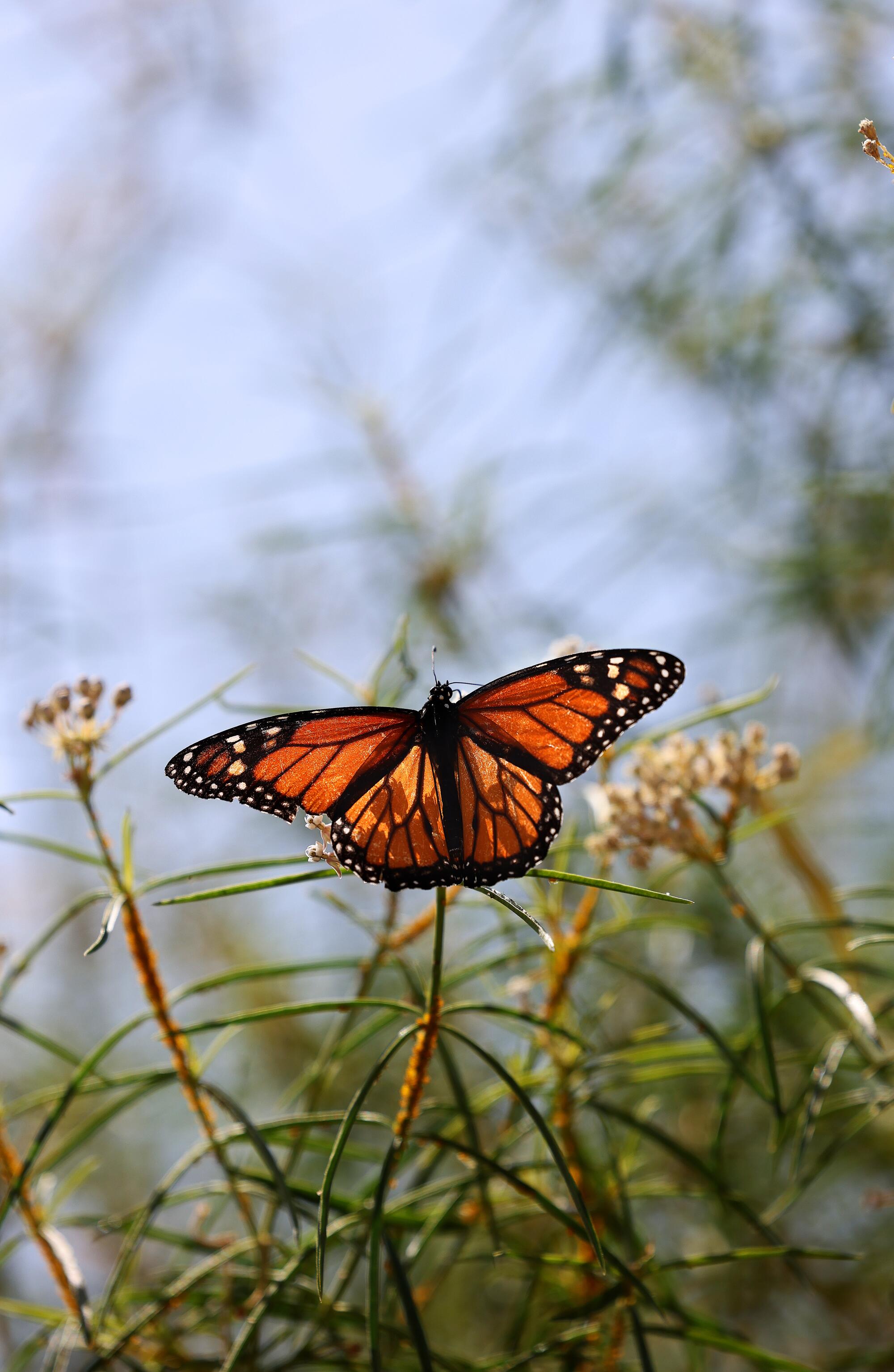
The butterflies are abundant in late summer, despite many of the native shrubs losing their blooms. There are still plenty of flowers: small violet bouquets at the tips of De La Mina verbena (Verbena lilacina ‘De La Mina’), frilly deep-throated flowers of the Pink Dawn chitalpa tree (Chitalpa tashkentensis ‘Pink Dawn’) and soft orange blooms of Palmer’s Indian mallow (Abutilon palmeri).
And of course, there are her abundant stands of narrow-leaf milkweed — the first native plants she added are now nearly 5 feet tall. The bushes have tall sprays of creamy flowers, but it’s the leaves that matter most. Monarchs must have milkweed to reproduce — it’s the only food the young caterpillars eat — so it’s little wonder that Anaya’s yard looks like a Disney movie of dancing butterflies.
It’s not as colorful as in the spring, Anaya said, when her garden is a riot of flowers “and the color palette changes daily.” But when she embarked on this journey to transform her yard to mostly California natives, she told her mentor Cameron de Anda, manager of the Los Angeles Parks Foundation’s native plant nursery, that she had to have color in her yard throughout the year including December.
That goal has come to pass: Something is always blooming in her yard, even during summer dormancy when many native plants go brown or die back to protect themselves from the heat.
“The dormant season doesn’t mean the plants are dead or dying; it just means they’re resting and reminding me that I need to rest as well,” she said during a tour of her garden in early August. Her work planning events for a community foundation “is very fast-paced,” she said. “But when I’m in the garden, it helps me slow down, be more present and take the time to observe nature.”
De Anda said he was relieved by Anaya’s reaction to summer dormancy, which is kind of Southern California’s twist on winter dormancy, when many plants lose their leaves and go brown in colder parts of the world. He did a similar garden for a relative, and the first summer when many plants turned brown, he said the relative complained that it looked ugly.
“And I said, ‘No, it’s not ugly, it’s just waiting for rain.’ People are so used to things being green all the time; it’s partially what turns people off to native plant gardening,” de Anda said. “I’m hoping we can get past that. A lot of people mistake dormancy for dead; they need to understand that if they just leave those plants, they’ll come back after the rains come. If everybody jumped in with Aurora’s enthusiasm, we would definitely have a very different landscape across Southern California.”
That enthusiasm has filled most of Anaya’s free time since she bought her house in early 2021. She got her milkweed — and inspiration — from de Anda in July of that year and then took a deep dive into learning about native plants, taking classes, following social media accounts and taking tours of botanic gardens, nurseries and private gardens.
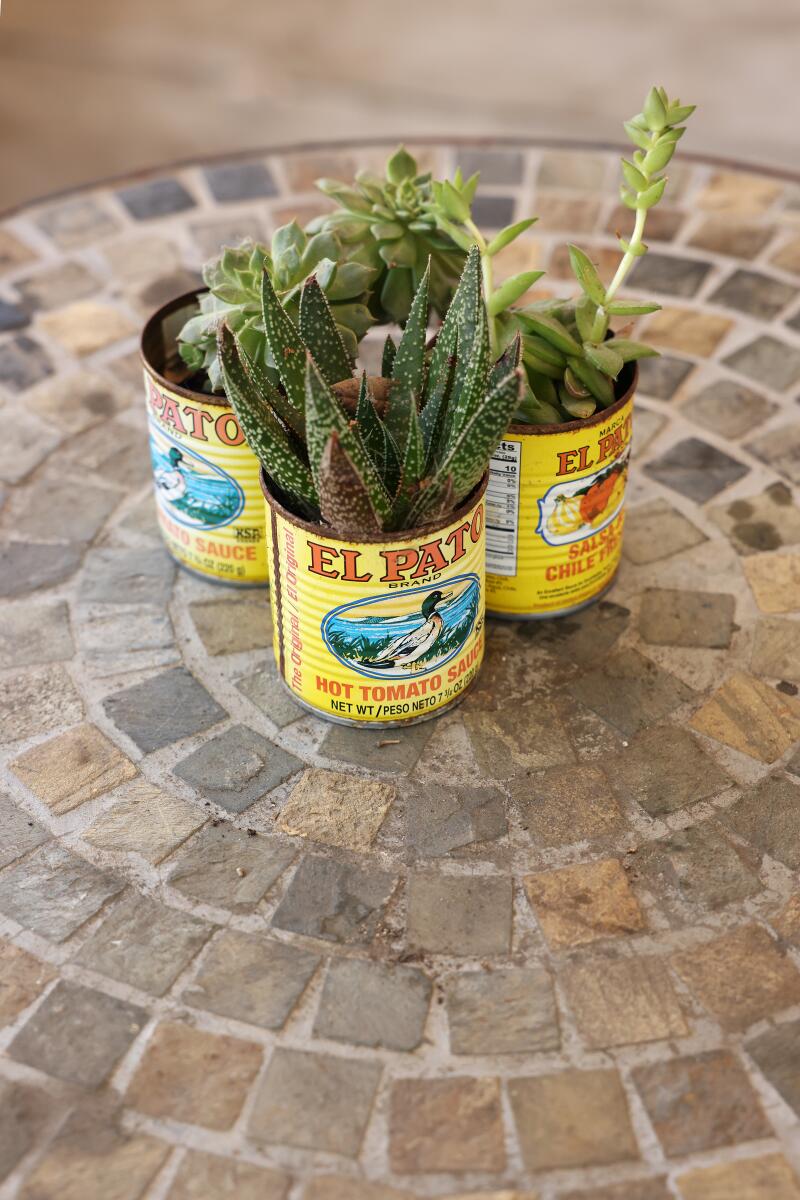
Repurposed cans of El Pato tomato sauce hold succulents on Aurora Anaya’s front porch.
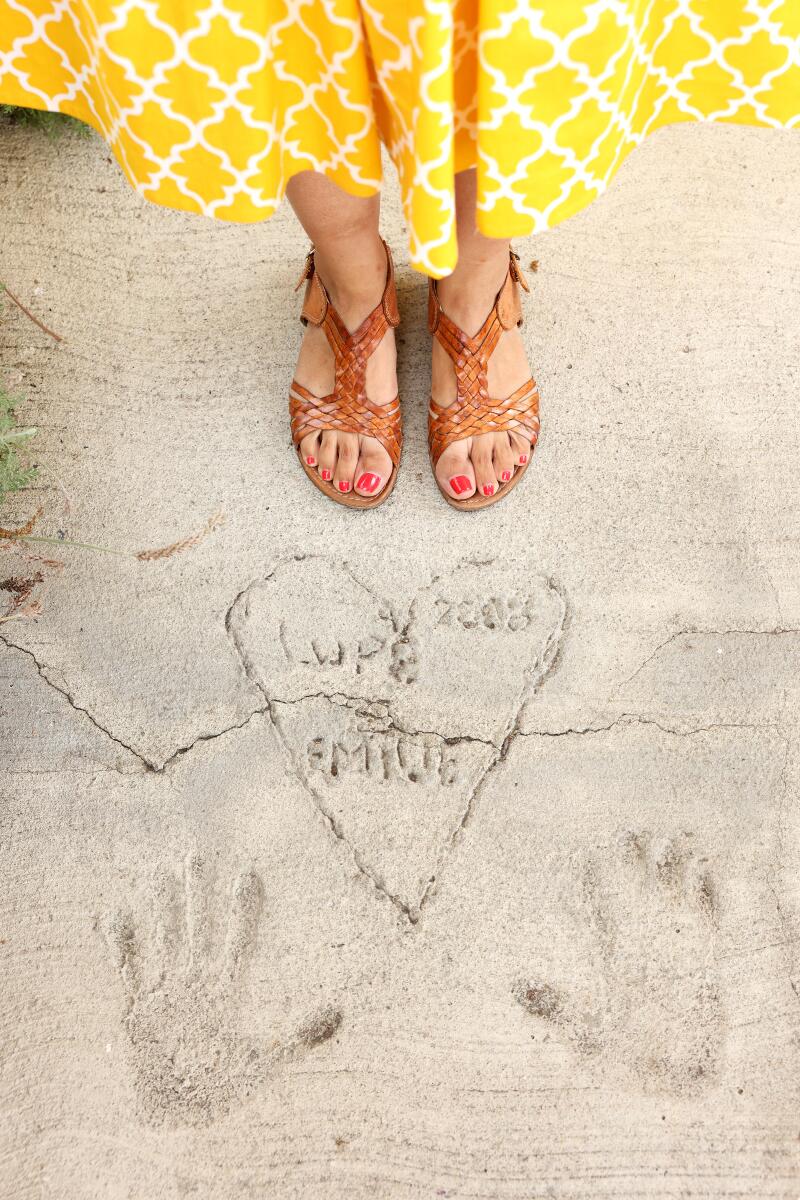
The names and handprints of the previous homeowners mark the walkway to Anaya’s front door.
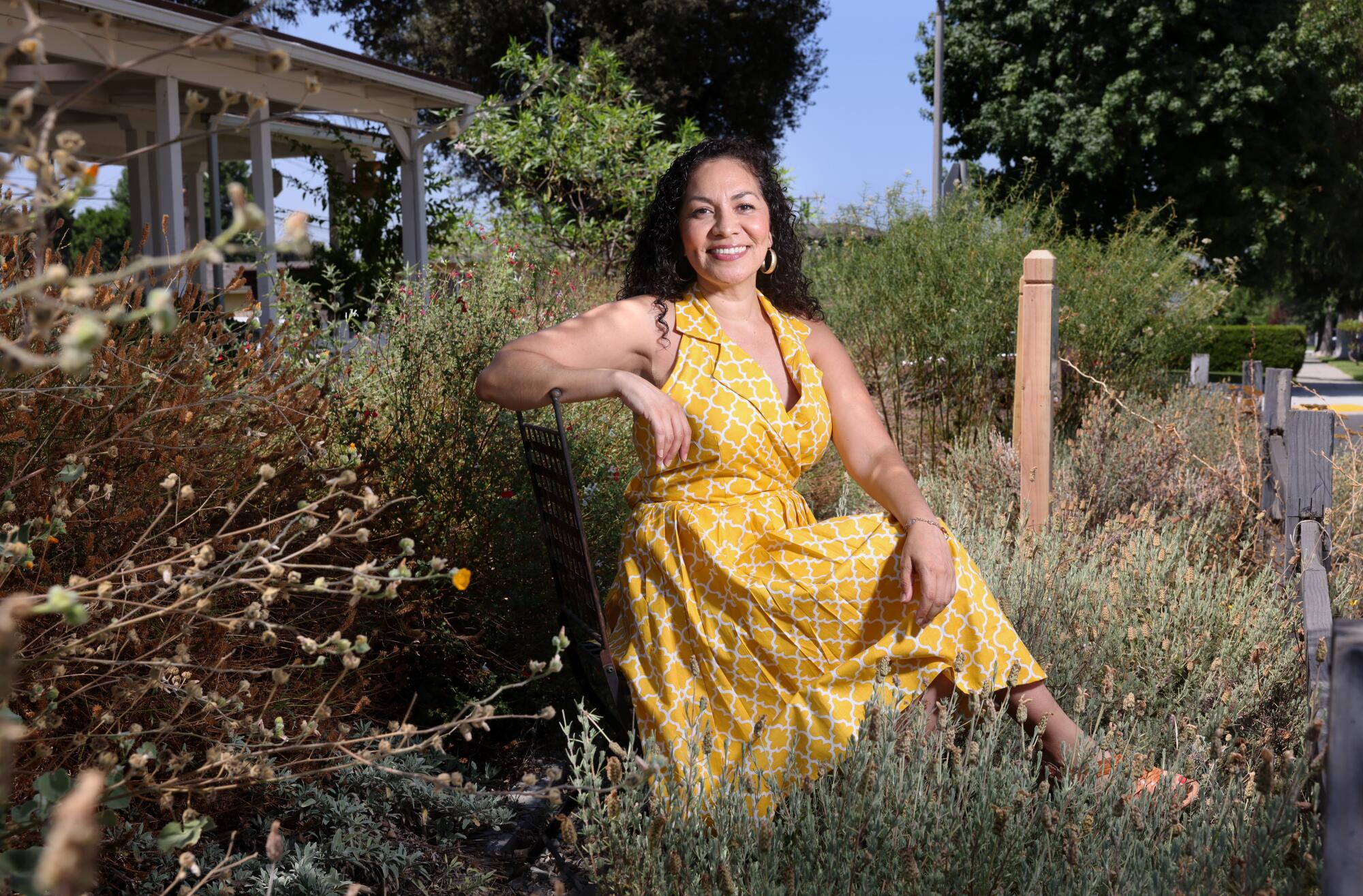
Anaya’s interest in a native plant landscape was solidified during the Theodore Payne Foundation’s annual Native Plant Garden Tour in spring 2022. She signed up for the San Gabriel Valley Water Co.’s Create your Garden water reduction program. Create Your Garden is a partnership with customers in which the water company covers the cost of a professional landscaper’s plan for a new landscape, herbicides to help kill a lawn and fresh plants, mulch and parts needed to install a drip irrigation system for the new yard.
Anaya worked with de Anda to create a design for her new garden. She hired EcoTech Services to install her drip irrigation system and remove 763 square feet of lawn from her front yard and parkways. She hired her contractor uncle to build a walkway through the garden and a short fence around her yard and then she hired de Anda to put her new native plants in the ground. Total cost between October 2021 and the final planting in May 2022? About $5,000.
She spread a variety of wildflower mixes from the Theodore Payne Foundation and Tree of Life nurseries and took over the maintenance once everything was planted. It has meant some long hours outside, making sure weeds and grasses didn’t return to crowd out her new native plants. But that yard work offered a benefit she hadn’t expected: “It really helped me connect with my neighbors,” she said.
“I was very new to the block and I was out there sometimes as late as 8 in the evenings, especially on weekends,” she said. “Initially my neighbors would just wave, but then as they saw me more and more, they would stop and chat or call out, ‘Keep up the good work! We’re seeing progress! It looks beautiful!’”
One woman told Anaya that she and her elderly mother made her house a destination point for their daily walks. “She said, ‘Your home is one of the most beautiful homes we see, so it’s become our marker. We walk to see your yard, and then we turn around and go home.’ ”
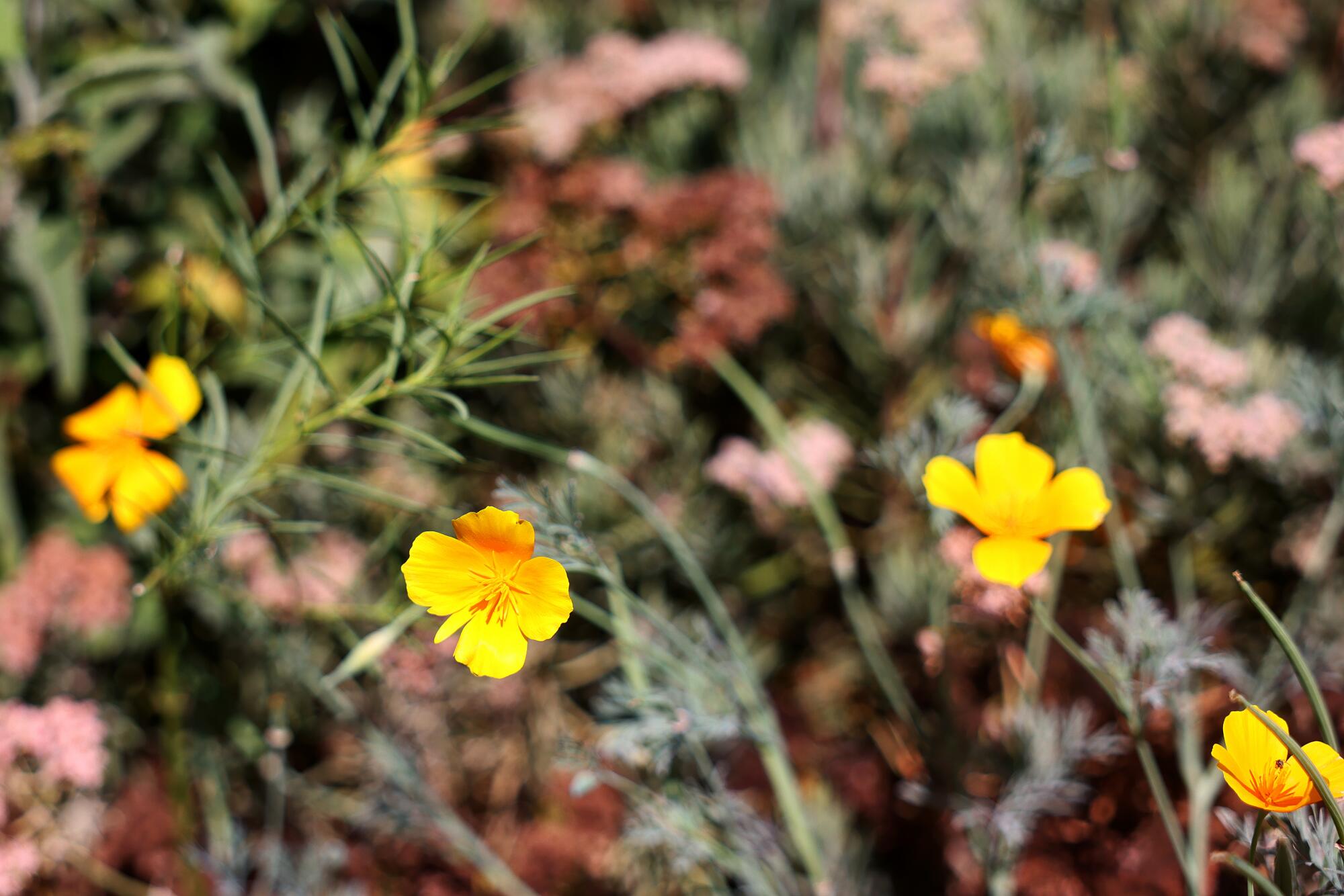
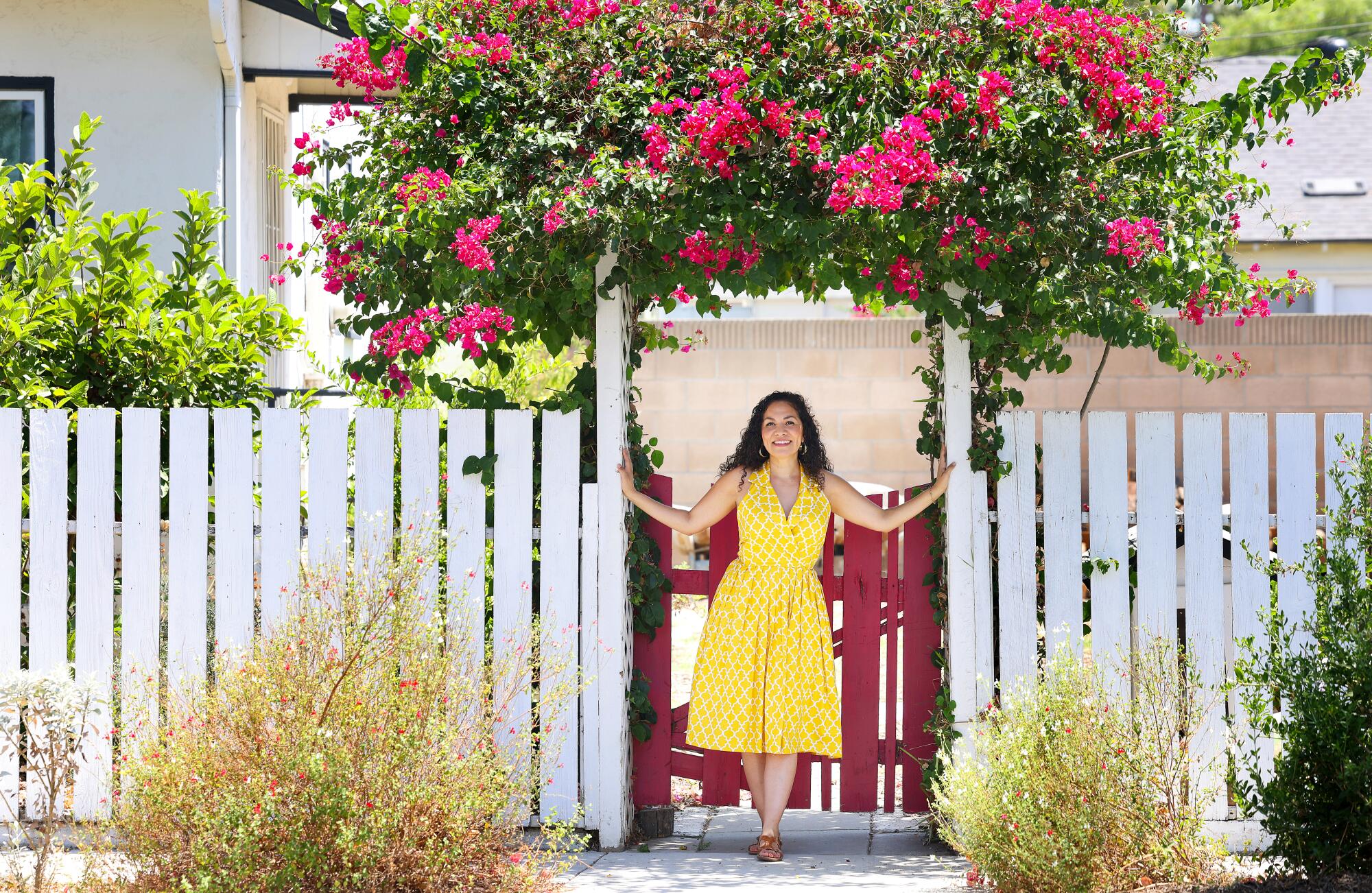
Anaya started sharing seeds with people who stop to ask her about the names of the plants, and she also offered tours through the Whittier Buy Nothing group. “If people were around on Saturdays between 10 a.m. to noon, I’d gift them two hours of my time to come and learn about native plants,” Anaya said.
All her work was amply rewarded in spring 2023 when her garden exploded with flowers and color. That showcase was amplified with her mature garden this spring. With her front yard filled in, she’s had time to start considering her backyard, where she rototilled her lawn and intends to grow vegetables in raised beds. The yard already had a few fruit trees — fig, plum, pomegranate and guava — and she’s added a few more, including a Meyer lemon, apricot and orange. She also expects to have winter vegetables planted this fall.
Her ambition and energy seem boundless, especially when she points out a small school bus she bought this summer to pursue her latest dream: creating a mobile store selling native plants, books about native plants and books by people of color at events around L.A.
This isn’t out of character. Books are another one of her passions. The L.A. native grew up in Boyle Heights and earned a double bachelor’s degree in history and Chicano studies with a specialization in education in 2001 from UCLA. Then she taught at an East L.A. middle school before following her dream to live in New York City in 2005.
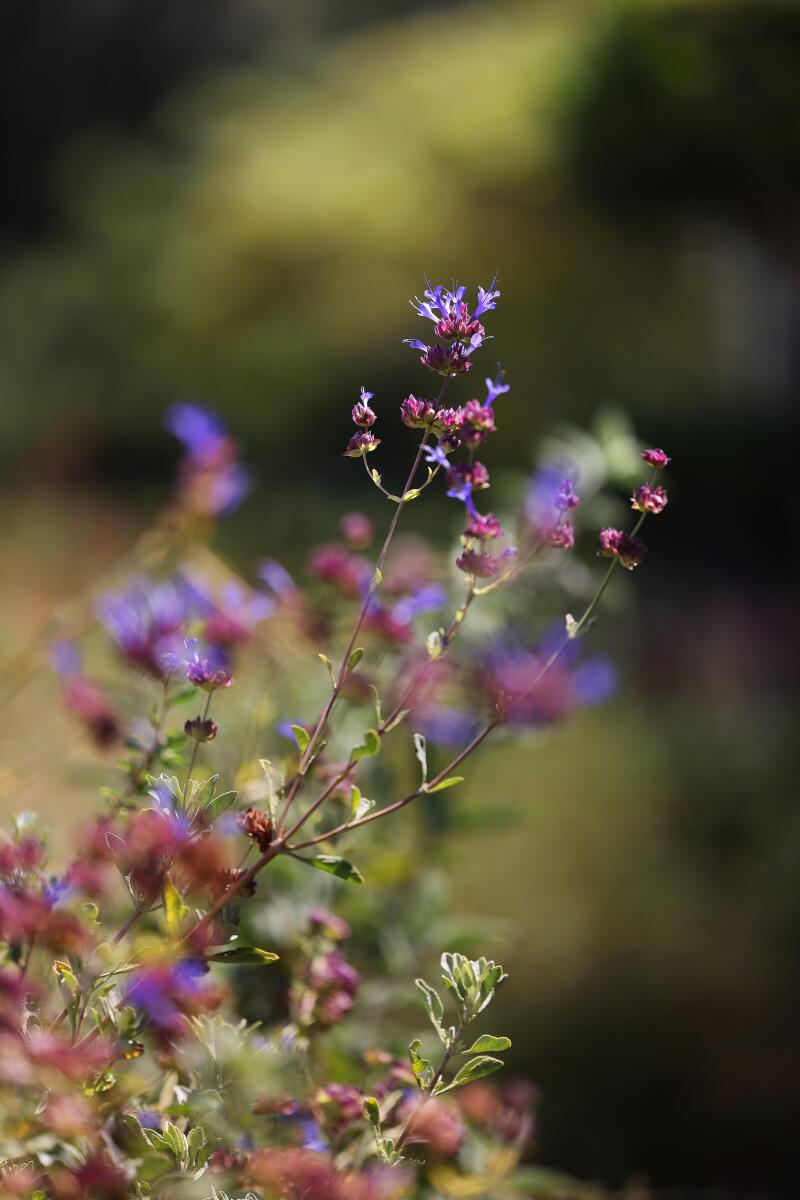
Purple sage grows in Aurora Anaya’s garden.
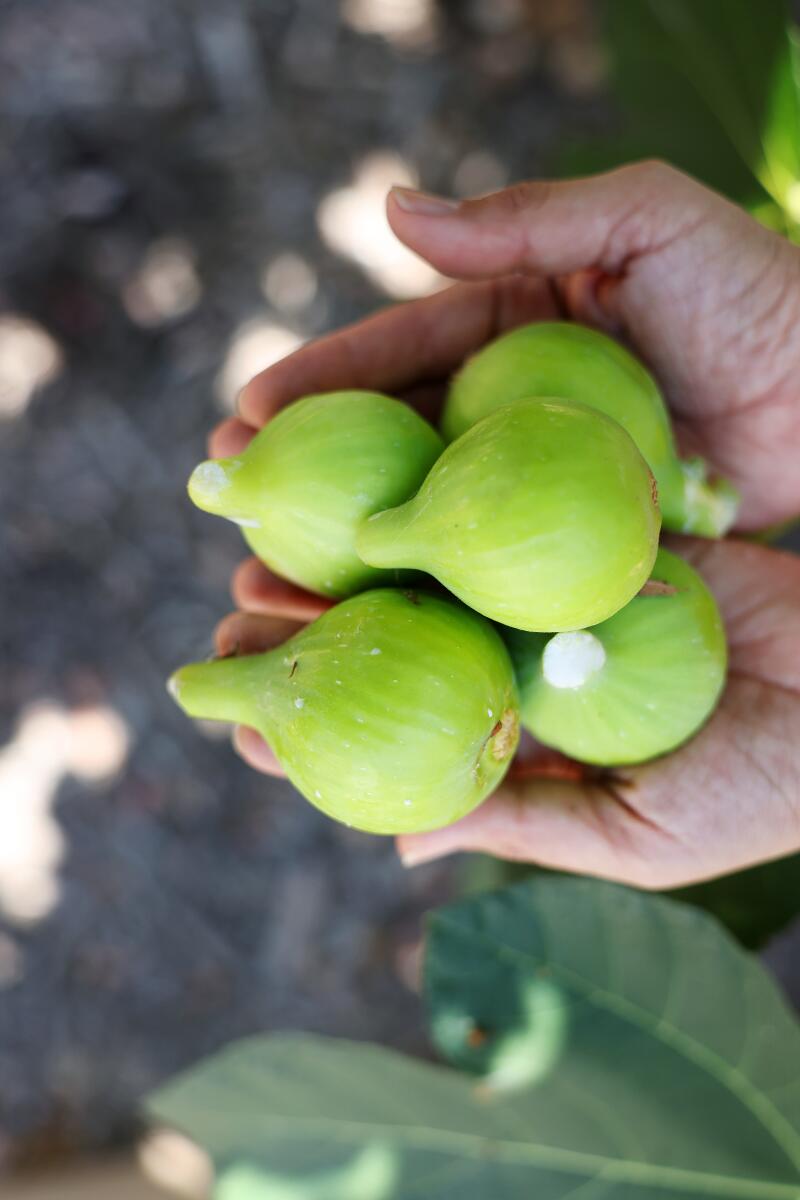
Figs picked from Anaya’s backyard fig tree.
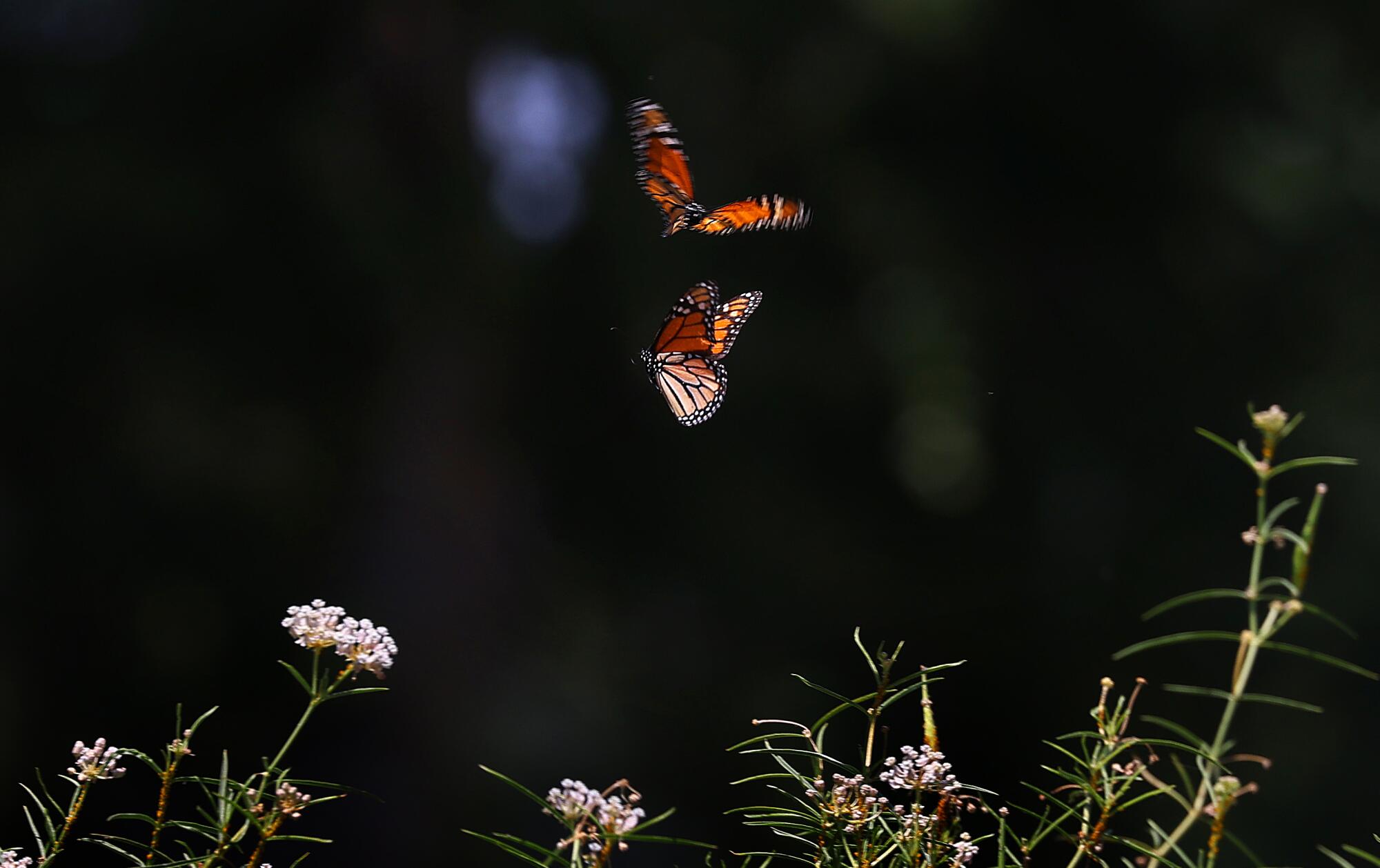
She moved to East Harlem and in 2008 started La Casa Azul Bookstore, an online store selling children’s books and educational materials by Latino writers. By 2011, she raised $40,000 in 49 days through crowdsourcing to open a bricks-and-mortar store. She closed the store at the end of 2015 and returned to Los Angeles the next year to be closer to her family and get a master’s degree at USC in social entrepreneurship at the USC Marshall School of Business.
She found her small white house with the black trim in Whittier in 2021 and was delighted to learn that its first owner was graphic artist Dorothy Gray Forbes, who designed the See’s Candies masthead and much of the company’s artwork.
Anaya also loved that the yard would allow her to continue her grandparents’ tradition as avid gardeners, especially because her life is pretty nontraditional for the daughter and granddaughter of Mexican immigrants: first in her immediate family to get bachelor’s and master’s degrees and first to live independently and purchase her own home. “All these things in Latino culture are not traditional,” she said, but her family has always supported her choices, including her headlong plunge into native plant landscaping.
Not every plant in her yard is a California native. There are a few roses against the house and some non-native trees and shrubs she bought for their beauty and low-water requirements: several Otto Quast Spanish lavender (Lavandula stoechas ‘Otto Quast’), a pink trumpet tree, a jacaranda tree and a bougainvillea whose bright magenta flowers arch over a gate of the same color.
“My mom shows off my garden to her friends any opportunity she has, and my nieces come over often as garden helpers,” Anaya said.
“We’ve already discussed how this garden has brought me closer to my community,” she said, “and then there’s just the benefit to my own health, relieving stress and anxiety by working outside pulling and weeding and stretching and just being in the garden, using all my senses and making my observations of hummingbirds and butterflies. ... It’s definitely sensory overload, but in the best way possible.”
Native plants in this garden
Narrow-leaf milkweed (Asclepias fascicularis)
Coyote mint (Monardella villosa)
Yarrow (Achillea millefolium)
Coastal sagebrush (Artemisia californica)
De La Mina verbena (Verbena lilacina ‘De La Mina’)
Island snapdragon (Galvezia speciosa)
Celestial blue sage (Salvia ‘Celestial Blue’)
Desert globemallow (Sphaeralcea ambigua)
White sage (Salvia apiana var. compacta)
Seaside daisy (Erigeron glaucus)
Red-flowered buckwheat (Eriogonum grande var. rubescens)
Bee’s Bliss sage (Salvia ‘Bee’s Bliss’)
California fuchsia (Epilobium canum)
Margarita BOP penstemon (Penstemon heterophyllus ‘Margarita BOP’)
Black sage (Salvia mellifera)
Point Sal sage (Salvia leucophylla ‘Point Sal’)
Bladderpod (Peritoma arborea)
Desert Wishbone bush (Mirabilis laevis)
Fragrant pitcher sage (Lepechinia fragrans)
Allen Chickering sage (Salvia ‘Allen Chickering’)
Western desert penstemon (Penstemon incertus)
Hooker’s evening primrose (Oenothera elata ssp. hookeri)
Brittlebush (Encelia farinosa)
Palmer’s Indian mallow (Abutilon palmeri)
Pink Dawn chitalpa tree (Chilopsis linearis)
Western columbine (Aquilegia formosa)
More to Read
Sign up for The Wild
We’ll help you find the best places to hike, bike and run, as well as the perfect silent spots for meditation and yoga.
You may occasionally receive promotional content from the Los Angeles Times.


